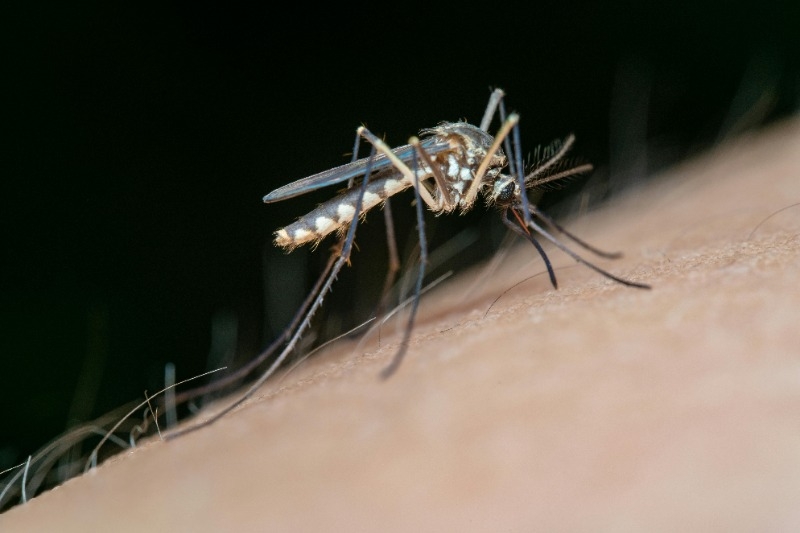West Nile and Cache Valley Viruses detected in Adams County Mosquitoes
September 19, 2025
Hastings, Nebraska – The South Heartland District Health Department (SHDHD) executive director Michele Bever reported the most recent collections of mosquitoes trapped in Adams County on September 9, 2025, have tested positive for two different viruses. Two samples of mosquitoes tested positive for West Nile virus (WNV), while Cache Valley virus (CVV) was detected in a third sample.
According to the Nebraska Department of Health and Human Services, CVV is endemic to (permanently present in) the U.S. and, like WNV, is spread to people by infected mosquitoes. Human disease from CVV is rare with under 10 cases ever reported in the U.S.
The Centers for Disease Control and Prevention (CDC) reports Cache Valley virus can cause an illness with fever or more severe disease, including infection of the brain (encephalitis) or the lining around the brain and spinal cord (meningitis). Initial symptoms can include fever, headache, nausea, vomiting, fatigue, and sometimes rash.
CVV is also known to cause reproductive disease in animals, primarily sheep, but also cattle and goats leading to stillbirths and birth defects in those animals if they are infected in a specific period during pregnancy.
As with West Nile illness, there are no vaccines to prevent or medicines to treat CVV.
“You can reduce your risk of becoming infected with West Nile virus and CVV by reducing your exposure to mosquito bites.” Bever said. “’Fight the bite’ by using an EPA-registered repellent and wearing long-sleeved shirts and long pants, especially when you are outdoors between dusk and dawn when mosquitoes are most active,” she said.
The health department also recommends draining standing water every few days to reduce sites for mosquitoes to breed. Items or surfaces that collect or hold water, such as bird baths, child swimming pools, pet bowls, tires, or flower pots can become mosquito breeding sites if not drained periodically.
The City of Hastings began adulticide fogging efforts Wednesday evening and continued those efforts Thursday early morning. City officials said adulticide fogging would continue in parks, around schools, and roadways in the evening and early morning time frames when weather allows. In addition to fogging, larvicide treatments are taking place to treat standing water areas.
Nebraska local health departments partner with the Nebraska Department of Health and Human Services (NDHHS) and the Nebraska Public Health Lab to trap and test mosquitoes in the counties designated by NDHHS. Adams County is the designated trapping county in the South Heartland health district. Trapping occurs every other week, typically ending in late September. For more information, visit southheartlandhealth.ne.gov or call 1-877-238-7595; or visit the NDHHS webpage for West Nile Virus & Mosquito Surveillance Data: https://dhhs.ne.gov/Pages/West-Nile-Virus-Data.aspx.
##


 Launch the media gallery 1 player
Launch the media gallery 1 player